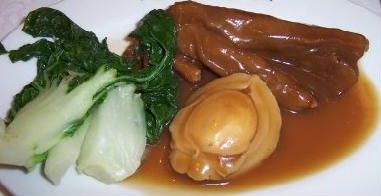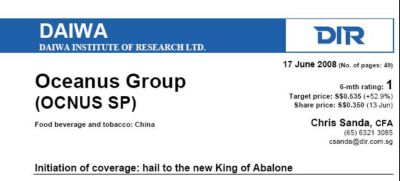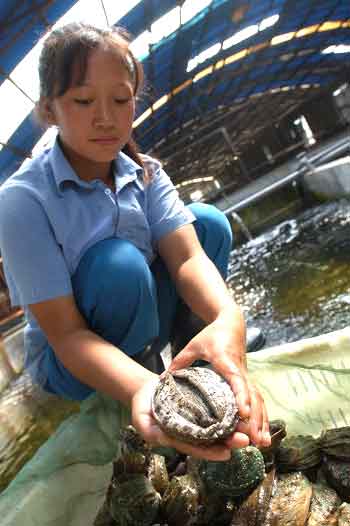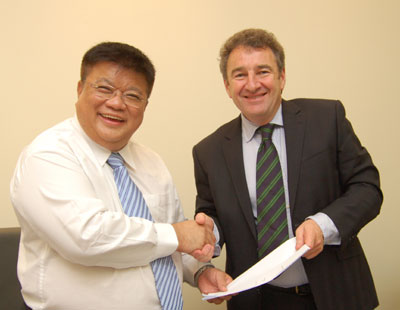
Abalone dish from Ah Yat Abalone Restaurant, which is a shareholder of Oceanus.
OCEANUS GROUP is one of a kind on the Singapore Exchange as it is a abalone farming company.
Based in China, it listed its shares on May 7 via a reverse takeover of TR Networks.
The stock has attracted strong market interest, featuring in the top volume list consistently.
It has also doubled in price from its placement price of 20 cents.
Daiwa Institute of Research initiated coverage yesterday (June 17) of Oceanus - the first broker to do so. It has a ‘buy' rating and DCF-based six-month target price of S$0.535.
”We like Oceanus for what we see as its exceptionally fast and relatively predictable earnings growth, strong strategic position, and unusually attractive valuation,” wrote senior investment analyst Chris Sanda.

Risks highlighted in the June 17 report include that of disease.
“Oceanus is trading currently at a 3.5x PER on our FY09 forecasts.”
Oceanus is a Singapore-based holding company for Weihai Nanyang, a PRC incorporated company that operates numerous abalone farms in Fujian Province.
The company also has one fish farm in Shandong Province. Oceanus sells its products live within China, often ending up in restaurants’ live fish tanks.
Chris noted that Oceanus has earmarked about S$15m (about Rmb75m) to expand its production and feed-mill capacity, not including funds for working capital (eg, abalone).
“We believe that S$15m would go a long way in rural Fujian, given the low land cost and simple tank construction. As such, we project that Oceanus can triple its year-end tank capacity in 2008, and double this again by the end of 2009.”

Chris Sanda figures that Oceanus can triple its year-end tank capacity this year.
Key risks
Chris highlighted the key risks being that Oceanus’ business revolves around its biological assets and if anything were to happen to them, they are not insured and cannot bounce back immediately given the lead-time required to rear them.
“We think the biggest risk is disease. Oceanus has multiple water inlets and keeps its abalone segregated in separate tanks to contain any localised infection.
”However, the water filters are sand-based, and do not filter out all bacteria or viruses, so a region-wide oceanic infection (as opposed to a localised communicable disease) could have an adverse effect on significant proportions of the biological stock.”
The Fujian-based production area is predominantly agricultural and appears to lack heavy industries that might pollute the water.
Daiwa’s research indicates that there are no major rivers near the Fujian operations and it has strong currents.
Recent story: Aquaculture firm OCEANUS lists on SGX





